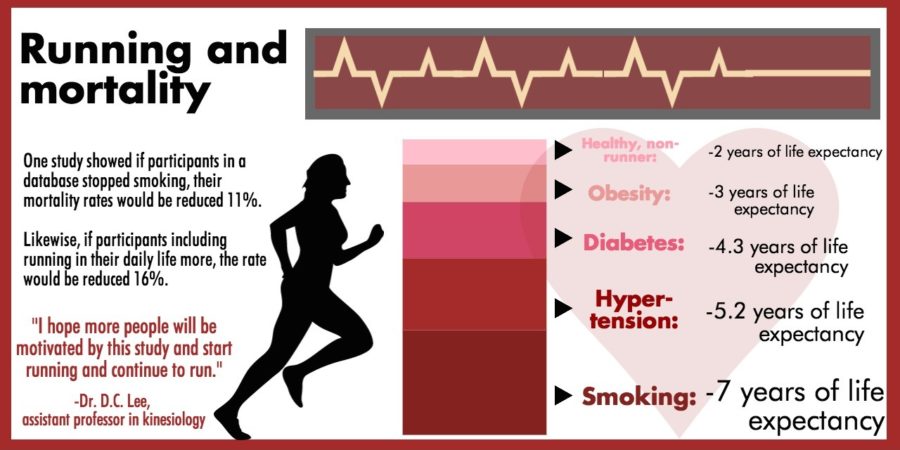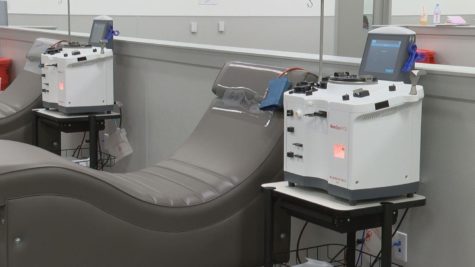Running for the long run
Richard Martinez/Iowa State Daily
D.C. Lee’s study showed if participants in a database stopped smoking, their mortality rates would be reduced 11 percent. Lee, assistant professor in kinesiology, also found that if participants including running in their daily life more, the rate would be reduced 16 percent.
November 12, 2014
Feet pounding on the pavement, heart pumping and muscles contracting, can do more than burn a few calories.
5-10 minutes a day dedicated to your feet pounding the pavement after a long day of classes has two significant benefits. Well one, you are working off the stresses of the day and waiting for Thanksgiving break to devour mom’s home cooking. Two, you are increasing your life expectancy without even realizing it.
Running has been proven to help increase cardiovascular health, but did you know that running has the potential to significantly reduce your risk of an early death?
D.C. Lee, assistant professor in kinesiology, helped conduct a perspective observation study, or cohort study, that observed the correlation between benefits of running and mortality rates.
“Running is one of the most common exercises people can start without buying a gym membership or buying any type of expensive equipment,” Lee said. “But there are very few studies relating running and risk of death.”
The study was established in 1970 and Lee joined in 2011. They studied the associations of running with all-cause and cardiovascular mortality risks in 55,137 adults, 18 to 100 years of age. Patients were studied over a span of 15 years and their results revealed that running only 5-10 minutes a day has the potential to significantly reduce a person’s risk of mortality.
“Most people don’t think, ‘Okay I’m going to run 10 minutes,’ but for some people who only have 10 minutes of free time, then this may affect them,” Lee said.
The study showed that any person who participates in running throughout the week automatically has a 30% lower risk of all causes of mortality and 45% lower risk of cardiovascular disease regardless of speed, amount or duration of each run.
“The study showed that a person who ran less than an hour per week had the same amount of mortality benefits compared to people who run three hours or more per week,” Lee said.
Lee compared non-runners to other mortality risk factors such as smokers, diabetes and hypertension to see which factor would have the lowest risk of death.
“For example, if you are a current smoker you have 67% higher risk of death,” said Lee. “And if you are a non-runner you have 24% higher risk of death.”
The study also measured the Population Attributed Factor, which is the percentage of death that could be reduced if a certain factor did not exist.
Lee found that if everyone in the database stopped smoking, the number of deaths would be reduced 11%. Likewise, if everyone was a runner in their database they could reduce 16% of all causes of mortality.
“Most people say they don’t have time to exercise or increase their physical activity,” Lee said. “But I think almost everyone can find at least 5-10 minutes in their day to run. I hope more people will be motivated by this study and start running and continue to run.”

















